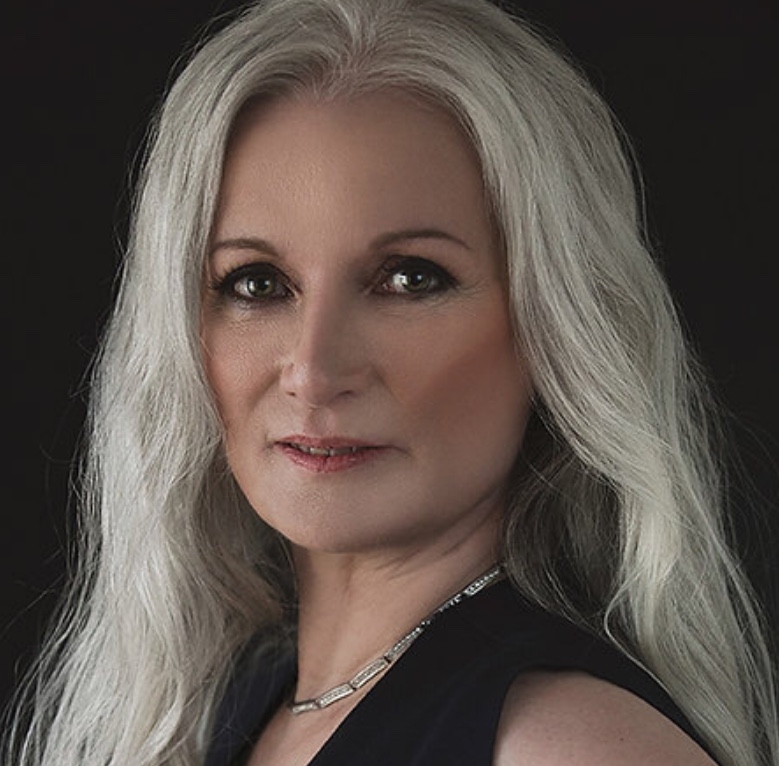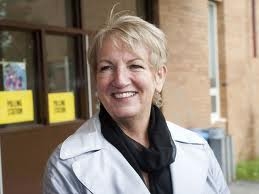
Trudeau and Goodale Ignore former Regina Police Woman’s Pleas for Justice
Photo credit: Jackie Hall Photography
There has been a lot in the news over the past few years about harassment and bullying in the RCMP. In 2017, more than 3,100 women working for the RCMP won a $100 million class action law suit and an apology from RCMP Commissioner Bob Paulson for harassment they faced in the workplace over a span of 40 years. "You came to the RCMP wanting to personally contribute to your community and we failed you. We hurt you. For that, I am truly sorry," Paulson said in a news conference in Ottawa on October 6, 2016.
The RCMP now faces a $1.1 billion lawsuit over bullying and harassment claims also dating back decades. Thousands of male and female RCMP officers, staff and even volunteers have come forward seeking compensation for the harm they endured while employed in Canada’s national police force.
Unfortunately, harassment and bullying in police forces is not limited to the RCMP. Former member of the Regina Police Service (RPS), Heather Gray, says she has been suffering for many years because of the bullying, harassment and abuse she faced while employed with the RPS.
In 1981, Gray became the first female police officer in the Moose Jaw Police Service, where she was born and raised. Even early on in her career Gray faced the difficulties of being a woman in a male dominated field. When she was offered a job with the RPS in 1983 she hoped that going from a service where she was the only woman to the RPS, which had 11 female officers, would allow her to fit in better and avoid further harassment based on her gender. “It was a cause of concern throughout my career path,” she says. “I was always on guard for something to happen.”
Gray was a valued member of the RPS, working as a patrol member for years in a high violent crime inner city area. In 1992, she became a hostage/crisis negotiator and was one of the top three on the team to formulate training scenarios, do active fundraising and organize training from the LAPD and FBI at SWAT schools held in Regina. As an eight-person team they responded to 55 calls a year that involved high-risk warrant and hostage taking situations. “I was very proud of that and very thankful to be on the team,” she says.
In 1996, Gray gave birth to her son, AJ, and five months later, in 1997, she joined the Criminal Investigation Division (CID) of the RPS in the child abuse unit. She trained as a forensic interviewer and dealt directly with children who had been abused. “I was a brand-new mother and had a full case-load of child abuse,” she says. Even so, Gray persevered and garnered much praise for her work on the cases she was involved in.
A few months into her employment in the child abuse unit Gray felt like one of her superiors, Sgt. Tom Griffin had put a target on her back. She remembers Griffin as someone who was emotionally unstable and would frequently lose his cool at work. “He had a tantrum over having to train someone,” she says. Gray says Griffin tried to undermine her work and bully her in the workplace. It only got worse over the next year as he enlisted others in her chain of command to assist him in making her life miserable. “Something was happening every day,” Heather remembers. “I couldn’t focus on my work.”
Everything came to a head in 1998 when a friend of Gray’s in the patrol division of the RPS came to her and her partner at the time, Christine Tell, about a group of officers cheating on the police promotional exam. Her friend didn’t want to go to the authorities herself because she was afraid it would be too easy for the cheaters to know it was her as she worked with them on their patrol team. Heather and Christine agreed to report the incident and went to Sgt. Tim Hesse in Internal Affairs. She mentioned to him that she was concerned that the issue would not be addressed because the inspector in charge of Internal Affairs, Garry Hoedel, was close with officers who cheated on the exam. “Tim assured me that he would look into it,” Gray says.
A few hours later, as Gray was walking to her car in the parking garage of the Regina Police Service, she was attacked by Hoedal. She says he backed her up against the cold wall of the parking garage, yelling “Who the fuck do you think you are,” right in her face. “I was terrified,” she says. “He was so aggressive and outweighed me by 50lbs. I thought he was going to head butt me.”
Gray says after he let her go she went straight to the RPS Police Chief, Calvin Johnston and told him what happened. She was very concerned because she knew that in just a few short weeks Hoedel would be coming over into her chain of command as the inspector in charge of CID. “All [Johnston] did was put his hand on the small of my back, guide me out of his office and say, ‘It’s a good thing Garry doesn’t hold a grudge’,” she remembers.
Gray says she could see what was happening. She had disrupted the Hoedel’s ‘boys club’ and she was going to pay for it. The men who cheated on the exam where part of the RPS hockey team that Hoedel was involved with and were highly feared in the service. “They were treated like gods,” Gray says.
Her nightmare came true in January 1999 and Hoedel became an inspector in CID. The Superintendent of CID, Vernon “Bing” Forbes was also in Hoedel’s gang and was well known as a loose canon in the RPS. “I call him the Arch-Bully,” Gray says. “He had all this unfettered power and did great harm to many people.”
Former RPS officer Marv Taylor knows the abuse that Forbes was capable of all too well. In June 1976, Forbes allowed a police dog to attack Taylor while they were working together in the RPS canine unit. Despite being accused of using unnecessary force with police dogs many times, Forbes was promoted through the ranks until he reached Superintendent of CID. “He was accountable to no one,” Taylor says. “Everyone was afraid of Forbes because they thought it would come back on them. He caused a lot of issues, but no one would address it.”
 Because Taylor questioned his actions Forbes undermined his authority, making his job in CID as difficult as possible. “He wanted to weed me out because he had his own people he wanted in,” Taylor says. In December 1998 Taylor was placed on progressive discipline by Forbes who also threatened him by telling him that he was going to have a “very uncomfortable year.”
Because Taylor questioned his actions Forbes undermined his authority, making his job in CID as difficult as possible. “He wanted to weed me out because he had his own people he wanted in,” Taylor says. In December 1998 Taylor was placed on progressive discipline by Forbes who also threatened him by telling him that he was going to have a “very uncomfortable year.”
With Forbes and Hoedel in charge, Gray had a similar experience while working in the child abuse unit. She was frequently given conflicting tasks from various ranks which were impossible to obey. When she asked questions, she was deemed insubordinate. Eventually they placed her under an unnecessary work order, causing her to resign from the hostage negotiation team and putting restraints on her that made it impossible for her to advance her career. “I couldn’t imagine anything worse,” she says.
Both Gray and Taylor describe the last few years of their employment with the RPS as the worst in their lives. “I was a physical and mental wreck,” Taylor says. “I was on the verge of a nervous break down and was two steps away from suicide.” Taylor says that all the bullying and harassment was reported to the Police Chief Calvin Johnston, but nothing constructive was ever done.
Thankfully for Taylor, when he retired in 1999, he had served just over 25 years with the RPS allowing him to receive his partial pension. Gray was not so lucky and left the force in 2001 with nothing but severe psychological scars from years of abuse. “This should have never happened,” she says. “I was ruined.”
Gray and Taylor have both been diagnosed with PTSD due to what they endured during their time with the RPS. Gray has also been diagnosed with several other mental illnesses including anxiety, depression and agoraphobia. Her situation has only worsened over the past almost 20 years of fighting to get compensation for what she endured. In 2005 there was a ruling in her favour for her to receive money and treatment from the Workers Compensation Board (WCB) because of psychological injury. The decision stated there was “ample evidence of bullying…..and further that the workplan was an ambush”. In 2007 the Regina Police Service mounted a campaign to reverse that decision and she was told by the WCB that she had been compensated enough for her PTSD. “I was absolutely devastated,” Heather remembers.
The next decade involved a continuous fight with the RPS, WCB, and Government of Saskatchewan which caused serious disruption in her home life and mental health. From 2007 to 2009 Heather says she was busy separating from her husband and making sure her son got through middle school, which was extremely difficult for him because of the issues at home. With her doctors advocating her case, the Saskatchewan Ombudsman instigated an intensive investigation into the WCB’s conduct in her case and in 2010 their decision came out, having found 11 cases of unfairness. When the findings were presented to the WCB they were brushed off. “The ombudsman has no authority so nothing about their recommendations could be forced or implemented,” Heather says.
The pair’s lawyer Bob Hycran believes that there is no doubt that harassment and bullying were rampant in the RPS during Gray and Taylor’s time and that they deserve compensation for what happened to them. He also believes that the RPS interfered with their WCB hearings, ensuring that they did not receive a pay out for what they endured. Hycran says he knew Gray when he was a young lawyer back in the 1990s. “She was a police officer who testified in my court cases and she did well,” he remembers. “She was a decent and sensitive person and she was bullied and harassed because of that.”
Gray and Taylor met with the MP for Regina-Wascana, Ralph Goodale, back in 2014 to discuss their case. At the time Goodale seemed sympathetic but said he felt he didn’t have the power to do anything about it as an MP. A letter was sent to Goodale, who is now the Minister of Public Safety, at the end of August 2018 to remind him of the 2014 meeting and ask him conduct a third party investigation into the RPS, similar to what he did for the abuses in the RCMP. “In light of previous conduct of the RPS/Board of Commissioners we have little confidence of a fair unbiased “review” of these offences involving former Senior RPS Officers,” Hycran writes in the letter.
It is well known that Goodale is friends with former RPS Police Chief Calvin Johnston who ignored both Gray and Taylor’s reports of abuse in the late 1990s. The letter has not received a response and Goodale’s Press Secretary Scott Bardsley told Ottawa Life Magazine that they, “do not comment on private meetings or letters received from constituents.” Bardsley did say that the Minister of Public Safety only has jurisdiction over the RCMP, not the over 300 other police forces in the country. Therefore, he is not in the position to call a public inquiry into bullying and harassment within the RPS, Bardsley says.
In January 2017, Gray hand delivered a letter to Prime Minister Justin Trudeau during a visit to the University of Regina, outlining her abuses and asking for his help. “Please don’t put this off,” she wrote. “As a caring family man do right by my family.” Gray has not received a response to this letter. Despite numerous calls and emails Ottawa Life Magazine was not able to get a response from the Prime Minister’s Office about why there has been no acknowledgement of the letter that was given to Prime Minister Trudeau almost two years ago.
Gray and Taylor met with current Police Chief Evan Bray in May of this year, and as follow up to the meeting he sent them a letter advising them to be patient as “these things take time.” Executive Officer of the RPS Lauralee Davies confirmed that while they are looking into the allegations, “it may take some time because it was so long ago.”
Both Gray and Taylor feel as though they have been nothing but patient. Their pleas have fallen on deaf ears for the better part of two decades. Gray’s situation is becoming increasingly desperate as she has had to liquidate all her savings to provide for herself and her son. She is also struggling immensely with her mental health. “I have no choice but to die,” Gray says, her voice cracking. “Nothing has gone in our favour and everyone has stepped on our necks.”
Hycran says that he believes bullying of officers is a daily occurrence and something that is a feature of police services. “You would be shocked to find out how many police officers have been destroyed,” Hycran says. In 2016, the Saskatchewan Party introduced legislation that would ensure that all Saskatchewan employees suffering from PTSD would receive benefits from the WCB. Key to this legislation was “presumptive coverage” that would assume that all occupations leave employees in a position where they could suffer from PTSD. The bill also allows coverage to be retroactive. For some reason this legislation has not made a difference for either Gray or Taylor. “Good things are happening but they are not translating into good things for Marv or Heather,” Hycran says.
Heather says she has evidence that suggests that the Saskatechewan Minister of Labour, Don Morgan and the Minister of Health, Jim Reiter, somehow accessed her WCB file, which is a violation of the Privacy Act, and placed documents on the file that have blocked her file from being re-opened. “This has had the effect of preventing my case from being accessed by the WCB Board, being accepted under the new legislation and thus assigning to me all the rights and benefits, including wage losses, I’ve earned and deserve over these last 18 years,” she says.
Given the sensitive and complex nature of their cases Hycran believes that a true, unbiased investigation into harassment, bullying and corruption in the RPS is needed. A lot of attention has been placed on the RCMP, yet little is being done to investigate the atrocities that occurred within the RPS that have caused significant hardship for Gray, Taylor and possibly more police officers who worked alongside them in the vicious, toxic atmosphere that was the RPS. Gray is looking for compensation for her injuries, wage loss and benefits as well as the pension that she was unable to collect because she was forced out of her position pre-maturely. Her harassers have been allowed to complete decorated careers in the Police Force while Gray has been left destitute and without hope. “In October of this year I should have finished my 35-year career and been on my way to a happy retirement,” she says, her voice wobbling.
RCMP Corporal Catherine Galliford, known for being a high-profile police spokesperson against harassment in the RCMP, says Gray’s story is not unique. “Our stories are difficult to share publicly because of the extent to which these institutions and organizations will go to discredit us starts to sound ludicrous to any sane person,” she wrote in an email. “We become afraid to tell our stories because the severity of the attacks on our character, our reputations, our work ethic, our families and our finances become too hard to believe.”
Galliford says Gray’s biggest mistakes were that she is female, she is intelligent, she is talented and she complained about harassment in her workplace. She became a threat to her abusers who have seemingly relished driving her into poverty. She believes that these are the stories that need to be told, but many of the victims are afraid to say anything. “They are afraid they won’t be believed and they suffer in silence,” Galiford says. “At the hands of the people who are supposed to protect us.”
Read more about Heather's story here:











